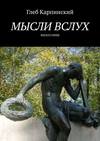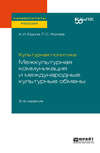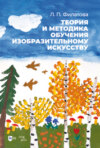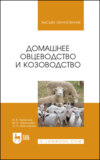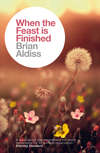Читать книгу: «The Hand-Reared Boy»
BRIAN ALDISS
Table of Contents
Cover
Title Page
Introduction
The Hand-Reared Boy
About the Author
The Horatio Stubbs Saga
Copyright
About the Publisher
Introduction
I was once travelling on a London bus. The young woman sitting opposite me was reading a book. It took me some time to realise it was my novel she had in her dainty hands!
Such occurrences are rare – rare and startling. You are never sure that real people will read your books. On another occasion, I was travelling with my children on a ferry to Gothenburg in Sweden. The boys discovered there was a chap with his girlfriend sitting on the upper deck reading Hothouse. The girl kept talking to him, breaking his concentration. My sons were genuinely cross with her!
This girl on the bus was about to get off the bus. I followed her and tried to strike up what one might call an acquaintance. She would have nothing to do with it. All the same, I realised the connection between real people, the real world, and the books I wrote.
… Later, I met a young woman who preferred masturbation to actual intercourse.
Although I have received many abusive – if not self-abusive – letters from readers, I felt and still feel I had hit upon a popular and real hobby in The Hand-Reared Boy.
Recently an American reader remarked that ‘If God had not wanted us to masturbate, he would have given us shorter arms.’
‘Extremely funny, genuinely erotic,’ was the verdict of the TLS to The Hand-Reared Boy. With that, I tended to rest my case.
The protagonist is key, and the name Horatio Stubbs held resonance for me. Was it quintessentially English? Horatio, fine – as in Horatio Nelson. As for Stubbs, Professor Stubbs was the editor of many old English charters, while one of the painters I most admired was George Stubbs, the 18th-century artist with a preference for painting horses.
Who could be more English than that?
Brian Aldiss,
Oxford 2012
The Hand-Reared Boy
On the one occasion that Sister Traven came to tea with us we were all in confusion beforehand, and my mother was the organizer of the confusion.
She darted here and flounced there, using what she called The Light Touch to bring me or Beatrice to heel – that is, saying in a Tone of Charm something more acceptable delivered in an ordinary voice. ‘No, Beatrice, dear, I think we won’t have our ordinary serviettes, if you don’t mind. Let’s have some of the special ones, shall we, the paper ones, out of the bottom drawer of the sideboard. Or I’ll get them, shall I? I’d better get them!’
Beatrice was not ruffled. She had been our maid for several years and was used to Mother’s ways. She was now married and no longer ‘living in’, but she still came in the mornings, when an older married sister looked after her increasing number of children. Today she was obliging and coming in the afternoon also, as she did on these special occasions. Among the alarms of setting the tea table I watched her with interest. A rather ordinary girl – not bad!
How faithful I am, I thought. Here I’m seventeen and she’s got two awful brats and must be at least twenty-five, and I still fancy her a bit!
‘Darling, have your found your tie? You’d better hurry up, or she’ll be here, won’t she?’
‘Do you think she’ll mind if I haven’t got my tie on, Mum, really?’
She surveyed me, smiling hard. ‘She must have seen lots of little boys without ties, and without more than that, Horatio! But, after all, she is your guest, and I think you might try and help me just a little.’
The ‘little boy’ grated as much as she must have known it would.
‘You wanted her round here, Mum – I didn’t!’
‘Sweetie, try not to be too aggravating just at this moment when I’m trying to help you and Beatrice and Ann. You know we’ve asked her for your sake. She’s your friend, isn’t she? And perhaps one day she’ll ask us up to Traven House to have tea with her, and her family.’
As I sneaked upstairs to look for my tie, I passed my sister going down.
‘That’s all she thinks about – that Sister Traven will ask us all out to her place to tea.’
‘I’m not going. I can’t find my dratted shoes,’ Ann said. She was then thirteen, one of the classic shoe-losing ages.
Even when I was in my bedroom I could hear her shouting at Mother. She was far more vociferous than I.
When I was dressed, tie and all, I sat on the edge of my bed, tentatively reading a magazine. Thus Mother found me when she came upstairs.
‘Ready, darling? Well, why don’t you go downstairs and be prepared for your guest? Wouldn’t that be nicest? I’m going to do my hair again – I must look like nothing on earth! I feel absolutely exhausted before she’s even arrived. I do hope she isn’t too fussy! I wish Daddy’d been able to fix the blackout properly in that room.’
‘You look fine, Mum.’
‘Thank you, darling.’ She came nearer to me and hugged me and gave me a kiss on the cheek. ‘You’re a good boy, darling, a very good boy. Don’t be in too much of a hurry to grow up, will you? Let me just put your tie a bit straighter. So glad you found it. I wish I’d borrowed Auntie Nell’s tea service.’
‘Why? Is ours broken?’
‘You know how cracked and chipped it is.’ She stepped back and surveyed my tie critically. ‘Your collars never look right. I bet they have really lovely tea services at Traven House, don’t you? You did say her father was an admiral, didn’t you?’
‘Rear-admiral.’
‘Good. Now you go downstairs, darling, and I’ll just tidy my hair and be down in a minute. And, Horatio …’
‘Yes, Mummy?’
‘Do try not to talk too Leicestershire!’
‘I’ll try, Mummy.’
‘Watch those long “u”s then.’
Rolling the magazine and cramming one end into my pocket, I went downstairs and glumly joined my sister. We sat one either end of the sofa. She did not blame me for our present constraints, for which I was grateful. She was playing chess with herself, as Father had taught her.
Like me, Ann was munching a cachou. Mother ladled them out to us on such nerve-racking occasions as the present, when we were about to be presented to someone of importance. Perhaps they effectively heightened our charms, though I have no recollection that our breaths needed sweetening.
On these occasions Mother always took a cachou herself, as she distributed them out of a tiny cardboard box. I loved their meretricious perfumed taste, even if they were associated with nerves and straightened ties.
My mother was a tall thin woman, several inches taller than my portly father. He was ponderous where she was bird-like. His reputation (somewhat unearned) was for never giving way to excitement; she (more justly) was known to be nervous. Our doctor had recommended fresh air as a restorative for my mother’s nerves and at this period of my life she was always out walking in the streets or the nearby countryside, sometimes with Ann and, less often, with me and Father lagging somewhere behind.
‘You’re too slow to catch a funeral!’ she would call back. Father, with an elaborate display of dumb humour, would stare about, searching highway and hedgerow for sight of the hearse.
The guest whose appearance we were now so anxiously awaiting behind our perfumed defences was the nursing sister of my school, Miss Virginia Traven. I say ‘my school’, but by this date I had determined that school was over and done with as far as I was concerned.
Several reasons existed for this determination, chief among them that I was finding my manhood, and that this was a good time to find it. The time was mid-September 1939, when Great Britain had been at war with Nazi Germany for something under a fortnight. My older brother, Nelson, had already disappeared into the Army, and was – according to the one letter we had received from him – messing about in a barracks in Aldershot. Beatrice’s husband, a husky young man who cleaned our car once a week, was reported to be training with the infantry somewhere on Salisbury Plain. My father was going through agonies of indecision about whether he should volunteer or not, and what the bank would say if he did. And I was sitting there on the sofa, picking calluses formed on my hands by the shovelling of great piles of soil on top of our air-raid shelter in the garden.
The doorbell rang. My mother cried from above, ‘There she is now!’
Beatrice went to the front door. Against instructions, I followed. I wanted to get a private word in first.
Sister came lightly in, wearing her worn but tidy light tweed coat. She smiled at me with her head held slightly on one side, and quickly put her small hand into mine. Something lit in her face at the sight of mine lighting.
‘Hope you won’t be too bored,’ I whispered. Mother was already bearing down the stairs, making little sort of preliminary tuning-up sounds. I stood back for the overture.
Meals have changed since then. They changed almost at that precise moment in time, as far as the Stubbs family was concerned. Perhaps that was the last of the rather lavish teas that my mother liked to give for her friends, sitting at the top of the table, with the teapot and its accessories by her side on a separate folding table, talking amiably to all and sundry, addressing each of her guests in turn so that none should feel left out, pausing now and then to give low-voiced instructions to Beatrice.
My poor mama! She was always happiest in the past, and this present spread was an attempt as much to stop the clock as to impress the visitor. In the recent declaration of war, boys of my age had already smelt change, and trembled; my mother’s generation doubtless did the same – but their tremblings were far less pleasurable than ours.
Perhaps for this reason she decided to address Sister as if the two of them were of the same generation. I must admit now that there can have been less than ten years between them, but that gulf appeared to be infinite at the time.
Over the jelly and cream, the dainty slices of brown bread and butter, the jams in their glass dishes inside silver holders, the sponge and fruit cakes, the buns and biscuits and chocolate éclairs that were there mainly for Ann’s benefit, Mother cheerfully talked of Sister’s future, about which she knew even less than I.
‘I must say, I think it’s jolly brave of you to throw up a safe job and join the war effort! You’ll have a wonderful time, lots of boy friends and admirers! Oh, I know!’
‘I’m hoping to get posted to France,’ said Sister.
‘Lovely, what fun! Go to Paris! Such a beautiful city. Notre-Dame! The boulevards! Robert and I love Paris, especially in the spring …’
‘You were only there one day, Mummy!’ Ann said.
‘A beautiful spring day – eat your bread-and-butter properly, Ann, and sit up straight! You’d like Paris, I know, Sister.’
‘Yes, I do, very much. I have connections there.’
‘Family connections, no doubt? I expect you know most of the capitals of Europe … I should like to do my bit for the old country, but I’m not as free as you – three children and a husband …’
‘You wouldn’t actually call Nelson a child, would you, Mum?’ I asked. ‘He’s in the forces and he’s grown a moustache.’
Mother smiled at me and held out her hand. ‘Pass your cup nicely if you’d like another cup of tea. Beatrice, I think if we could have some more hot water … Nelson looks so silly with a moustache, Sister! Of course, you’ve never seen him. They’ll soon make him shave it off. He’s at Aldershot; Robert was there in the Great War. He’ll always be my child if he lives to be sixty. I hope he’ll do well in the Army. I believe your family are some of them in the forces, Sister, aren’t they?’
A small foot kicked me under the table, and Ann made a face at me over her cup; we could almost feel Mother forcing the conversational-tone-improving word ‘Admiral’ to materialize in the air above the table.
‘Try and drink more like a lady, Ann,’ said Mother, catching the movement. ‘Aren’t they, Sister?’
Sister was sitting at table eating demurely, half-smiling in a way she had. She looked, I thought, rather like a dutiful young daughter, except that her face was faintly lined. Her short hair, some strands of which were quite fair, was neat and beautiful. She was so – well, you could see she was the product of upper-class breeding.
‘My father and his brother were in the Navy.’
‘Oh, the Navy, the senior service! And I expect they were both very successful, weren’t they? Let me cut you a slice of sponge.’
‘I wouldn’t say successful. My father’s brother, poor Uncle David, was drowned at sea.’
‘You poor thing! I’m so sorry. Horatio never told me!’
‘I didn’t know,’ I said. ‘I never heard of Sister’s Uncle David.’
‘No, of course, you didn’t,’ Sister said, giving me a little secret smile. ‘It was rather a tragedy. It happened in 1917. I was crazy about my uncle, although I was only a tot. He was so brave and so handsome. His ship was sunk in the Atlantic by a German U-boat. He was in the water for some incredible time, clinging to a spar. At last a British merchant naval vessel picked him up and – do you know? – he hadn’t been aboard an hour before that ship was also torpedoed by a U-boat. It went straight to the bottom, Uncle with it.’
‘War’s a terrible thing,’ Mother said, causing a plate of cake to circulate.
‘We’ll soon beat the Germans,’ I said. ‘Their tanks are made of cardboard. The Head said so.’
There was a pause for silent patriotism and fruit cake.
‘But your father’s alive and well still, I hear,’ Mother said.
Sister nodded. ‘He’s a rear-admiral. Retired, of course. Now he talks about closing down Traven House and getting back into harness, if the Admiralty will have him.’
We all smiled. Mother said, ‘Rear-admiral … A pity the way our grand old homes have to close.’
Father had looked up Sister’s home in an old Baedeker the previous evening, and found: ‘3 m. farther NE, Traven House, Georgian, fine Vict. orangery, once the home of Sir Francis Traven, Gov. of Massachusetts Bay, 1771–9.’ We were all delighted, and wondered if Sir Francis’s descendants still grew oranges there.
‘Have you got any ghosts?’ Ann asked. ‘I’d be quite terrified! Do you have battlements, with phantom men in armour clanking about?’
Sister laughed, a very charming little display. ‘No, no ghosts, no battlements.’
‘But Horry told me …’
‘Eat your cake,’ I said. ‘You’d be terrified of the mere thought of a ghost.’
‘Don’t bully her, Horatio, and do just brush your hair out of your eyes. That’s better!’
‘Mummy and I would love to come and see you at Traven House,’ Ann said.
Our visitor looked askance. ‘I’m afraid I shan’t be at home much longer, Ann, otherwise I’d love to show you both round.’
The words sank deep into my heart. Although I continued to munch gloomily at the cake, I ached inside. She couldn’t leave! I needed her. I loved her. She could not realize what she was doing to me or she would never go.
There were four females in the room with me. Excluding my mother, I had had sexual relations with all the others. But the need was now for Sister, entirely for Sister, only for Sister, among all the women in the world.
Should I stand up and declare my feelings? Would they laugh? What would Mother say? But Mother at this point, having poured herself a last cup of tea, was doing her party stunt and declaiming some poetry learnt as a girl:
‘Old Holyrood rang merrily
That night, with wassail, and glee.
King James within his princely bower
Fêted the chiefs of Scotland’s power,
Summoned to spend a passing hour.
For he had vowed that his array
Should southwards march by break of day.
Well loved that daring monarch aye
A banquet and a song.
By day a banquet and at night
A merry dance, made fast and light,
With dancers fair and costumes bright,
And something loud and long
This feast outshone his revels past.
It was his biggest and his last.
‘And so it goes on – I forget what comes next. It’s the court bit from Sir Walter Scott’s “Marmion”. I learnt it at school. Oh, I could spout it for hours! I tell Ann and Horatio they ought to read more poetry. Are you a great poetry-reader, Sister?’
Sister made some suitable reply.
After tea Ann slipped away to play in her bedroom. I hung around while Mother entertained my guest.
‘Well, darling,’ she said at last, turning to me. ‘Fetch Sister Traven your latest paintings. He really does show promise.’
‘I haven’t done any more since I saw her last.’
Smiling, shaking of head. ‘He’s done several, Sister. He’s far too modest about them. I’m a great admirer of the British artists, Gainsborough and Hogarth, and others.’ For some reason she pronounced Hogarth as if it had two “g”s: Hoggarth.
‘It’s “Hogarth”, Mother. One “g”.’
‘I can spell Hogarth, darling. And pronounce it. A fine artist. We used to have a butcher called Hogarth at home, in the old days. Anyhow, Sister, it’s been very good of you to take such an interest in Horatio, and to take him out as you have done. …’
Truer than she thought, I said to myself. I watched Sister as she rose to leave; not, if you were strictly honest, a great deal of figure. But I could discern her breasts under the jumper, and I knew how sweet they were, how pink the nipples, when you disengaged them gently from the brassière … Steady, you sod, or you’ll be getting a hard on …
We all stood up. Mother lightly patted down a curl of hair on the back of my head, and then squeezed me affectionately.
‘I tell him, if he were a girl, I’d get a slide to that piece of hair. How it infuriates me! But he’s a good boy. I sometimes reproach myself that I neglect him, bless him. Yes, I’ve been very lucky with my children.’
‘Oh, not that again, Mother! She says that to everyone, Sister. She forgets what little horrors we were.’
‘I’m sure you were,’ Sister said, smiling. It amazed me at the time that she was not at all put off after seeing me treated as such a kid.
‘When this one cried as a child, his father got so mad at him, he used to take him to the window and threaten to throw him out! But he was a good boy, on the whole. Well, Sister, it’s been so pleasant … Horatio, go and get Sister Traven’s coat, where are your manners? Yes, I do hope we’ll see you again soon …’
As they moved to the door, I got there first, opened it, and edged myself half out before saying, ‘Mother, I’ll just drive down the road with Sister. There’s something I want to tell her.’
‘Tell her now – you’ve been quiet enough up to now!’
‘No, it’s all right. I’ll tell her on the way, Mum. Then I can drop off to see William. I shan’t be long.’
‘Yes, all right, dear. Don’t be long. Your father will be home soon.’
As Sister and I made our way down our five whitened steps and along the front path, I took her arm and led her to the car. Mother stood waving as we drove away; I hoped she had noticed my gesture.
‘Let’s go up by the cemetery.’
‘You mustn’t be long!’
It was generally quiet in the lane that ran by the side of the cemetery. She stopped in a suitable place without any mucking about. We turned and looked at each other. There was no sign on her that she had been through the ordeal I had. We kissed each other. Not exactly a passionate kiss – I knew I would not get that kind from her at this hour of the day; the passionate ones, and even the ones before the passionate ones, which were her way of testing her own mood, only materialized after dark. But certainly a loving kiss. Again I was amazed that she was not put off by Mother’s attempted demonstration that I was just a kid.
‘You were very nice to Mother,’ I said presently.
‘She was nice to me.’
Better not explore that subject! I asked her if we could drive about until it got dark. She knew what I meant.
‘I must get back to Traven House, love. The family solicitor is coming over specially this evening, to sort out some of my papers. I have various bonds and other possessions, and a little not-very-valuable jewellery, that I am going to leave in his safe-keeping until the war is over.’
‘God, how I wish you weren’t going, Virginia!’ I ran my hands over her body, but she would only stand a certain amount of that in a semi-public place. In a safe room it was another matter. Once, after dark, in the dark, she had let me undress her and I had run my hands all over her body, and then slipped a finger into her fanny and began to frig her gently. That little secret organ of hers! But there could be nothing like that on this occasion.
She had made me grow up, made me see that there were other things than immediate satisfactions – I would not have dared ask her to toss me off, as I might have done with another girl; for Virginia was teaching me immense ideas about sexual organs – ideas that I learned only reluctantly, ideas that went against all my early training: showing me that love had to be there somewhere, and that against the recurrent isolation of life the hastily snatched orgasm was not the only antidote.
Firmly, she held my hands.
‘There’s a war … People get separated. I learnt that in the last war, when I was younger than you.’
‘I can’t bear to be separated from you, Virginia, darling! We’ve only just got to know each other.’
She looked very searchingly at me, then said, so quietly that I could hardly hear, ‘You can always write to me at my Nottingham address. I shan’t be off to London yet … And, Horatio – I must tell you … You really don’t know me at all.’
I rested my head on her shoulder.
‘Oh, Virginia, I want to, I want to know you better. You’re so wonderful for me, and I love you so much.’
She never said she loved me. But she stroked my cheeks and looked at me in what for her was a wild sort of way.
‘Virginia, I want to know you …’ The eternal cry of lovers. It was eventually by getting to know her that I lost her.
‘Sweetheart, you are a child!’
‘You never said that to me before. Why say it now? I know you don’t mean it as an affront – as Mother does when she calls me a child. But I’m sick of childhood. I’m finished with it, I hate it! It’s so sordid – you’ve showed me – Christ, you’re the one who has brought me out of it!’
I choked on the words. We just sat there in the uncomfortable car, touching and looking at each other. She never even said that she needed me, but I had always been secure in that. I knew she needed me; it was one of the things I understood about her without the necessity for words.
We parted there by the bloody old cemetery, in which my grandfather had been only recently buried. I walked back, hands in pockets, saying to myself over and over, ‘Fuck, oh fuck, oh fuck it all, fuck the whole shitting issue!’
And as I went along, I resolved that my childhood could be closed, after all, if I really wished for it. Did I really wish for it? What would being an adult entail? That was unknown. What had being a child entailed?
All very mysterious. It had not meant a lack of sex. I was introduced to the delights of masturbation early, and had never looked back since then. You might say I was a hand-reared boy. Perhaps I should have been ashamed of all that; I was not. People pretend to be so enlightened about sex these days; they talk happily about copulation and such subjects, about adultery and homosexuality and lesbianism and abortions. Never about masturbation, though. And yet masturbation is the commonest form of sex, and tossing off the cheapest and most harmless pleasure.
Of course, as I grew older I graduated to more fashionable delights.
Shortly before I was born, my father was promoted manager of a branch of Barclays Bank Ltd. in the East Midlands. It was a small dull town then, in the early twenties, and is a large dull town now. For a reason I forget, we did not go to live in the accommodation the bank offered, but instead took over a large house on the edge of the town which had been an inn in the prosperous days, a century earlier, when the stage-coaches flourished.
One of my first memories is of the smell of beer which the floor of our living-room released whenever the sun shone on it or the room was warm – ancient beer, which had soaked into the wood for decades, and could never be eradicated, however my mother set her series of maids to polishing. Could I somehow have become intoxicated by those benevolent fumes as I sprawled on the floor? Did they have some loosening effect on my infantile moral sense? Sophisticated fellows might answer yes. But I believe the maids themselves were more to blame for my failings!
Of those maids, and in particular of Beatrice, we will speak later. First I must describe the family.
My father was a small and aloof man. He could be cold and sarcastic, to his wife as well as his children. He feared his father, my grandfather, until the day the old man died, and I believe this relationship did much to blight his pleasure in life. When my grandfather and grandmother came to stay with us, as they did all too often, my parents suffered a good deal.
My mother, on the other hand, was thin and clinging. Although far from passionate, she demanded love from her family and returned it by spasms. Terribly moody herself, the highest praise she reserved for other people was to say, ‘So-and-so is always the same!’ She cosseted me often, devoting much attention to me where my father devoted almost none. Yet I never doubted that he loved me deeply, just as, from a remarkably early age I doubted whether she loved me at all.
My elder brother, Nelson, was born in 1920. He grew tall and thin and dark where I was chubby and fair. I always admired him and he tolerated me with what I regarded as marvellous good nature. He hit me a good deal, as I suppose bigger brothers do. He loved animals and once tried to stuff a dead cat with wood shavings – his only venture into taxidermy. Nelson was a fairly clever boy, clever enough to be always slightly rebellious; he was secretly planning to become an architect, and drawing fantastic buildings, at an age when I was tamely following Father’s suggestion that I should go into banking and ‘work your way up’.
I was born three years after my brother, with my fists – so claimed the midwife – clenched in my eyes. 1923 was not a good year to be born. There were dock strikes in England and coal strikes in America. The French were occupying the Ruhr, Hitler was tunnelling away in Munich, like a mole under Germany’s troubles. A mighty scene was already being set for my late and trivial adolescence. On the day I arrived in the world there was a severe earthquake in Japan.
My mother was always secretly frightened of men. I say ‘secretly’, but a mother has fewer secrets than she imagines from the young innocent tagging boredly and apparently unobservantly at her skirts. The way in which she was all friendly condescension to the tradesmen, the way she skirted the dole queues which afflicted the Midlands – and perhaps much more subtly the way all her appeals and coquetry towards Father were framed – spoke of her terror of the male. Although both her parents were dead long before I arrived howling on the scene, they had been a formidable couple by all accounts; her father; whose old farm we sometimes drove past in our tiny black car, had been a tyrant of the Victorian school. No doubt he, and the stern nonsenses with which he could fill a small girl’s head, were sufficient to give her a scare for life.
Marriages (I was told as a kid) are made in heaven. In fact, they seem to be made in a tiny, dim, shuttered, undiscovered room in the brain, where some fiendishly clever little hunchback of a genius sees to it that we get the marriage partner we really want, whatever we think we want, and however we rail against his choice later.
I believe that, much though my mother suffered from my father’s coldness and his sarcastic tongue, she chose him because he was aloof and did not ‘trouble her too much’.
Since I do not go far with the psycho-analysis, I’d better drop that line of reasoning. It makes sense to try to make sense of our parents; it is part of the process of understanding ourselves. As far as Freud helps common sense, he is welcome. I suppose he might have agreed that, for whatsoever reason, my mother was happier in the company of her own sex.
For that reason she badly wanted a little girl. If Nelson was a disappointment, Horatio was a greater. Not being a maths wizard, she must have felt that the chances of the second baby being a girl were twice as great as the first time. My father, who, as a banker, could no doubt have enlightened her on that simple excursion into the realm of probability theory, characteristically did not. Mother went into what was euphemistically termed ‘a nervous breakdown’ and took several months to recover. Perhaps it was in some sort of revenge for that that they called me by the unfortunate Christian name I bear; or perhaps, had I been a girl, they had been intending to christen me Emma; when my father read a book it was about British heroes – preferably Nelson.
Anyhow, the mother would not look at the new baby, or was advised by the family medico not to look at the new baby. A wet nurse was found for the new baby, and he went to stay in her house for the first two months of his existence.
Was it that early exile that tipped the sexual scales? I ask myself … but no longer very fervently!
Legend has it that my father came every evening after the bank closed to inspect his second son and to see that the wet nurse was looking after him. The action sounds hardly characteristic of Father, although the story sounds characteristic of Mother’s tales.
Бесплатный фрагмент закончился.
Начислим
+5
Покупайте книги и получайте бонусы в Литрес, Читай-городе и Буквоеде.
Участвовать в бонусной программе


